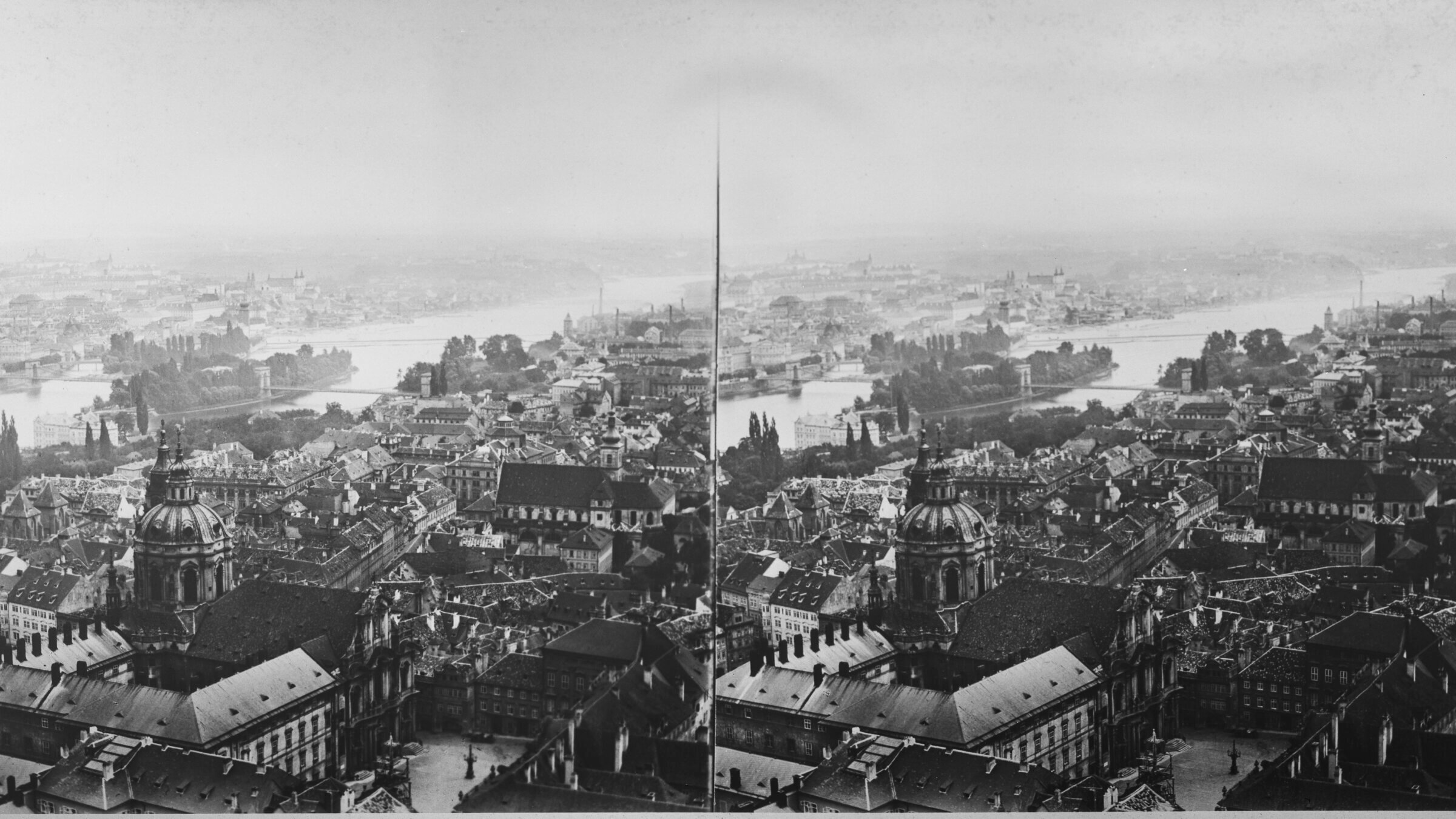How a Jewish son of Prague became a 101-year-old historian of human ideals
Intellectual historian Peter Demetz survived close calls during wartime to become a scholar of German literature

A view of historic Prague. Photo by Getty Images
The Czech-born Jewish intellectual historian Peter Demetz, who has died at the age of 101 proved that being a persecuted minority in a city can add in-depth knowledge and understanding.
In acclaimed books about his native stamping grounds, Prague in Black and Gold: Scenes from the Life of a European City (1998) and Prague in Danger: The Years of German Occupation, 1939-45: Memories and History, Terror and Resistance, Theater and Jazz, Film and Poetry, Politics and War, Demetz offered a dazzling panorama of cultural and historical events from the Middle Ages to the 20th century, focusing on conflicts between German and Czech factions of Prague, and how both could turn with violent hatred against the Jewish population.
As a scholar of German literature, Demetz also enlightened and edified readers, especially with his Reflections: Essays, Aphorisms, Autobiographical Writings by Walter Benjamin (1986) and an edition of Gotthold Ephraim Lessing’s 18th century play Nathan the Wise (1991), about how a wise Jewish merchant Nathan, an Islamic sultan, and Christian Templar found common ground for mutual tolerance. Because of Demetz’s own personal history, his writings could be most acute when dealing with times which such tolerance vanishes, as in his cogent afterword to Panorama, a novel by Hans Günther Adler, a fellow Czech Jew who survived Theresienstadt and Auschwitz.
Like Adler, Demetz had his own close calls during wartime. He was born Petr Demetz in 1922 to a Jewish seamstress who, having divorced Demetz’s German father by the time of the Nazi’s rise to power, was deported to Terezín where she was murdered (as was Demetz’s maternal grandmother and aunt). Demetz was sent to a labor camp for half-Jews in Silesia, and was later interrogated by the Gestapo because of his association with a resistance group. These early experiences affected the rest of his prolific scholarly output, as indeed they did his first wife with whom he escaped to the West, Hana Demetz (1928-1993), who wrote the sadly now out-of-print Holocaust memoirs The House on Prague Street and The Journey From Prague Street.
Yet Demetz could leaven his serious messages with wit, as his students at Yale and other universities noticed; at one sobersided academic conference on Dada in the 1970s, Demetz indicated the genuine spirit of that anarchic arts movement by pulling out a water pistol and spraying his fellow speakers. In a speech at the Czech Embassy in Washington, D.C. in 2010, he described his parents affectionately:
“Family reports affirmed that my father was immediately enchanted by my mother, and all my aunts, in both sides, Jewish and Catholic, unanimously said that it was because there had been few Jews in the Tyrol and none in the lonely Ladin valleys, and my dad was hopelessly attracted to the exotic zrska, redhead, with freckles… they married after the war, against strong reservations by both families – one arguing against the Jewess, the other against the goy, but to little avail.” Describing the scene in the deportation center where he accompanied his mother in 1941, Demetz added:
“I think my mother admonished me not to neglect my further studies, and we talked about her sister and mother who had preceded her to Terezin. We embraced and she kissed me and I made my way to the exit, accompanied by the orderlies showing my identification which was not marked with a J for Jew, and they suggested to stay put since I would be in a transport soon anyway. I stepped out on the ordinary street, cars and trams going by, and people going home from the office. A Czech member of the State Police, stationed at Terezin, later reported to my father who had paid him a neat sum, that grandmother had died almost immediately after being deported, and my mother a year later.”
Despite these experiences, Demetz retained a belief in human potential and ideals incarnated by the Czech statesman Thomas Masaryk (1850-1937), termed by Demetz the “great Unknown of Czech history,” a philosemite whose debunking of the blood libel — the idiotic, but historically believed, accusation that Jews murder Christian children to obtain blood for Passover rituals — accorded him hero status with world Jewry.
A message from our CEO & publisher Rachel Fishman Feddersen
I hope you appreciated this article. Before you go, I’d like to ask you to please support the Forward’s award-winning, nonprofit journalism during this critical time.
We’ve set a goal to raise $260,000 by December 31. That’s an ambitious goal, but one that will give us the resources we need to invest in the high quality news, opinion, analysis and cultural coverage that isn’t available anywhere else.
If you feel inspired to make an impact, now is the time to give something back. Join us as a member at your most generous level.
— Rachel Fishman Feddersen, Publisher and CEO